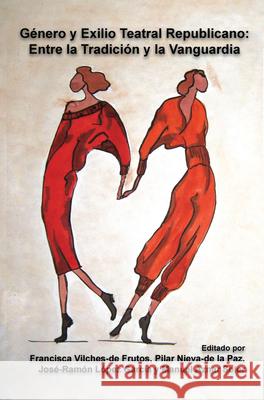Genero y Exilio Teatral Republicano: Entre La Tradicion y La Vanguardia » książka
Genero y Exilio Teatral Republicano: Entre La Tradicion y La Vanguardia
ISBN-13: 9789042038028 / Hiszpański / Miękka / 2014 / 368 str.
This volume deals with the commitment in the defense of egalitarian values by theatrical creators of the Spanish republican exile of 1939. Their innovative narrative and visual discourse offer models of masculinity and femininity that represent the change in gender paradigms derived from the rising leading role of women in the public sphere. The book approaches the potential differentiation of work produced by them in terms of sexual identity, especially in questions as maternity and conjugality, showing the position of society with regard to the professional women. It also explains the influence of the professional roles achieved by the republican Spanish women in the international scene -Mexico, France, Argentina, Cuba, Chile, El Salvador, Guatemala, Uruguay- thanks to their use of modern artistic languages in works located between Vanguard and Tradition. They were also known for their work in Cinema, Radio, Television, Pedagogy and Translation. All these fields let women creators and managers continue with their artistic labor in the republican exile. Without forgetting the links with the country of origin, they were the best ambassadors of those artistic vanguards that so influenced the modernization of ideological and esthetic discourse in Western societies. Este volumen indaga sobre el compromiso en la defensa de valores igualitarios por parte de los creadores y creadoras teatrales del exilio republicano de 1939, cuyos innovadores discursos narrativos y visuales presentan unos modelos de masculinidad y feminidad representativos del cambio en los paradigmas de genero acordes con el creciente protagonismo de las mujeres en la Esfera publica. Aborda la potencial diferenciacion de sus realizaciones en relacion con su identidad sexual, en especial en cuestiones como la maternidad y la conyugalidad, y la posicion de la sociedad ante las mujeres profesionales. Trata asimismo de la influencia que tuvo la agencia femenina republicana en la escena internacional -Mexico, Francia, Argentina, Cuba, Chile, El Salvador, Guatemala, Uruguay-, gracias a la modernidad de sus lenguajes expresivos, entre la Vanguardia y la Tradicion, y a su trabajo en el Cine, la Radio, la Television, la Pedagogia o la Traduccion, que permitio a estas creadoras y gestoras continuar su labor artistica durante su exilio. Sin olvidar sus vinculos con su pais de origen, fueron los mejores embajadores de aquellas vanguardias historicas que tanto influyeron en la modernizacion de los discursos ideologicos y esteticos de las sociedades occidentales.











